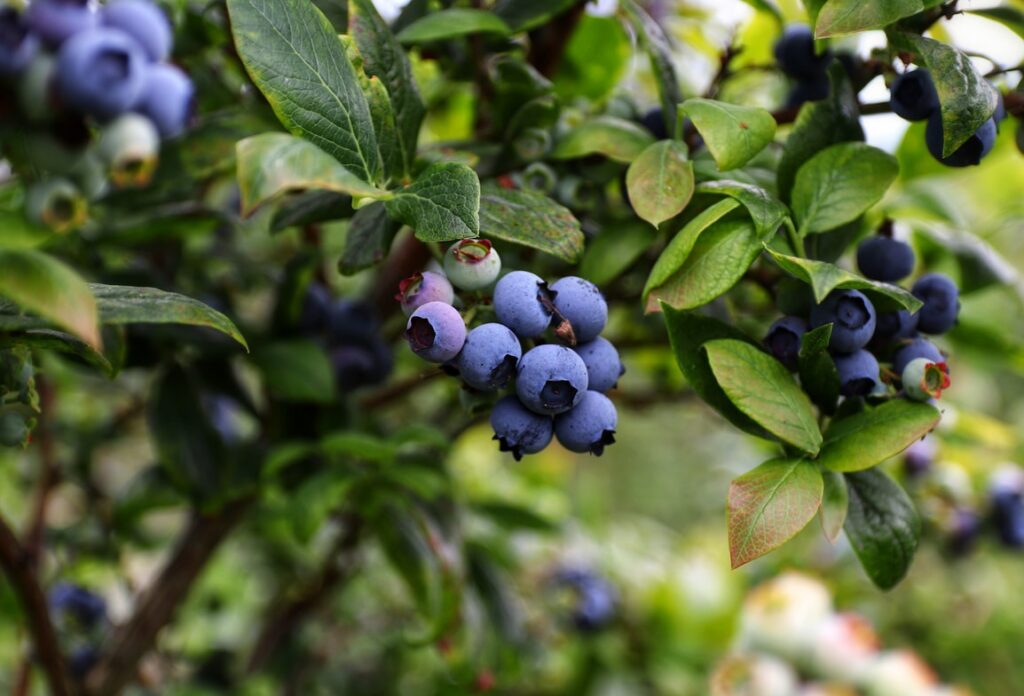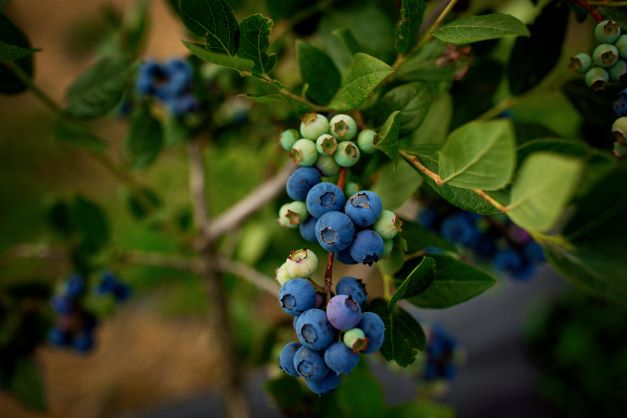The main season of blueberry in Georgia is over. Georgian blueberry growers and exporters have beaten their records, as EastFruit already reported – they harvested up to 3,000 tons of berries and quadrupled blueberry exports in one year. USAID Agriculture Programme was one of the most active blueberry farmers’ supporters through the support of the grower’s association, technical assistance, and facilitation of blueberry export to the EU countries.
EastFruit spoke with Louisa Namicheishvili, Chief of Party of the USAID Agriculture Programme, about details.
“We believe that the blueberry sector kickstarted this season successfully, – reveals Ms. Namicheishvili, – with pilot exports to the EU. Currently, 36 tons have been exported to Germany/Netherlands and 37 tons to Poland. Also, our program beneficiaries export around 59 tons of blueberry to Gulf Countries and Hongkong. This became possible through the Business Lead Generation Program, which is implemented in cooperation with Enterprise Georgia and the Rural Development Agency (RDA). The Program aims to facilitate business links between Georgian agribusinesses and international buyers from the Gulf States and Germany – countries identified as Georgian blueberry’s most lucrative export destinations. During this season, seven blueberry growers managed to access the EU market, and we hope that some of our new activities will help increase this number. Export market diversification is a high priority in Georgia’s agriculture sector and is also in line with USAID’s country development strategy.”
Read also: Georgia wants to become a global blueberry market player: 3,000 tons production forecast for 2023
Many Hands Make Light Work
The Business Lead Generation Program was built on the solid ground of industry associations, experienced growers, and professional advice offered by USAID experts. The blueberry growers and consolidators engaged in export operations are Agriculture Program beneficiaries who have been supported to establish postharvest handling infrastructure, introduce modern food safety standards, upgrade farming practices, or identify international buyers.
“The USAID Agriculture Program has provided technical assistance to blueberry growers and consolidators since 2018. This assistance mainly focuses on modern agricultural technologies, postharvest handling, and cold storage practices. The Program has engaged several leading international consultants from Portugal, Poland, USA, and other countries who have provided regular targeted training and consultancies to blueberry growers and consolidators. Some of the experts, like Jorge Duarte from Hortiool Consulting, have continued cooperation with Georgia’s blueberry sector on a commercial basis.” – explains Ms. Namicheishvili.
“The USAID Agriculture Program has closely cooperated with the Georgian Blueberry Growers Association, especially in export promotion. The association currently unites 21 members (primarily commercial growers) that operate 800 hectares of modern blueberry orchards in Samegrelo-Zemo Svaneti, Guria, and Imereti. Many association members have participated in the Business Lead Generation Program “.

The star is born
“Georgia-grown blueberries certainly have a potential to compete in retail chains, such as Rewe, believes Ms. Namicheishvili. Most of the commercial growers produce modern varieties like Suziblue, Star, Legacy, Duke, Miss Alice Mae, Blue Ribbon, Miss Jackie, Top Shelf, Colibri, New Hanover, Sweetheart, Valvor and ect, and pursue proper production and postharvest handling practices. Notably, new orchards are also being established using modern varieties. International buyers who visited Georgia under the Business Lead Generation Program were pleasantly surprised by the diversity of modern varieties available in the country. However, this does not mean producers with “old varieties” have fewer opportunities. As the experience has shown, “old varieties” can be well-received in high-value markets with proper postharvest handling practices. The firmness, flavor, and size give Georgian blueberries a competitive advantage and will help position them in high-value markets, such as the EU.”
Postharvest handling plays a crucial role in the value chain, as berries have a very short shelf life, and proper handling can extend it. According to the Georgian Cold Storage and Logistics Association (GCSLA), there are 118 cold storage operating throughout Georgia, including 35 supported by the USAID Agriculture Program. About 15 cold storages situated in West Georgia are focused on blueberries. Their estimated total storage capacity is about 3,500 tons per season. Thus, there is enough capacity to handle the precious berry,” – concludes Ms. Namicheishvili.
What’s next?
Ms. Namicheishvili: “The USAID Agriculture Program ends in March of 2024. However, some of the upcoming activities will support blueberry growers to prepare for the next season and ensure the sustainability of the newly established market linkages. For example, the Program will facilitate MOUs between the Georgian Blueberry Growers Association and international buyers to help local growers meet the requirements and streamline logistics and other procedures. With the experience and linkages established during this season, it is feasible for Georgian producers to export up to 1,000 tons of blueberries to the EU market next year.
The use of the site materials is free if there is a direct and open for search engines hyperlink to a specific publication of the East-Fruit.com website.




